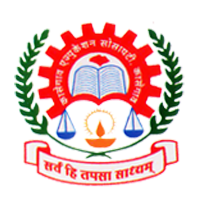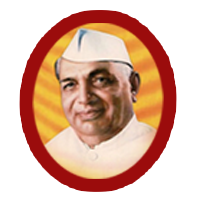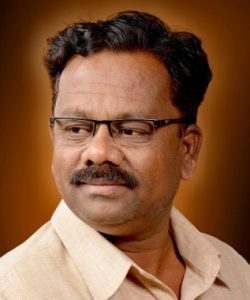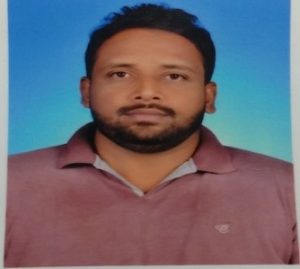Work in progress……
- About the Department
Department of English, established in 1965, offers UG & PG Programmes in English. The curriculum for both the programmes is framed by Shivaji University, Kolhapur. The syllabus under this curriculum is highly useful for students to acquire basic communication skills, soft skills, life skills, etc. It introduces students with English language, literature and its various genres in order to develop creative and critical abilities.
The department strives to enrich its students through a number of activities such as certificate courses, value-added courses, film screenings, field work, lectures of invited scholars, and so on. It offers certificate courses i.e. ‘Spoken English’, and Value Added Course in ‘Basic Grammar in English’ and ‘Speech Writing and Delivering’ which help students to improve language skills, build communicative competence and develop research aptitude. The departmental expresses pride in its outstanding achievements at University Level Exams and University Merit Scholarships. The Best Practice of the department is ‘Words for Today’.
The roadmap for further academic journey of the Department rests on four elements central to the Department: students, teaching, research, and society. Through this plan, the Department seeks to maintain and strengthen its long-standing reputation for excellence in teaching, research and nation building.
- Vision
The Vision of the Department is to develop the department as a centre for academic excellence through teaching and research that encourages and nurtures literary sensibilities, language competence and critical thinking.
- Mission
- To develop LSRW Skills, Life Skills, Soft Skills, Employability Skills of the students
- To acquaint the students with English grammatical forms and structures
- To inculcate phonological competence among students
- To foster the ability to study literature as the mirror of society
- To promote students to compose poems, short stories.
- To acquaint the students with the history of English literature, major genres, and movements with the salient features and cultural backgrounds through the major eras.
- To acquaint the students with the major writers in English through the study of their representative literary works.
- To promote students to understand and grasp the major literary terms, theories, concepts, aspects and elements of the literary forms of various ages.
- To make the students aware of the role of literature in the formation and reformation of society.
- To develop among students the ability to interpret, appreciate and evaluate any literary work
Tab Content
S.N. | Subject | Link |
1. | Manusaki Chorila Geli A Street Play Performance by Students of Arts and Commerce College, Ashta |
|
2. | Structure of Letter |
|
3. | Preparation for England: An Extract from Autobiography by M. K. Gandhi |
|
4. | The Selfish Giant by Oscar Wilde |
|
5. | Modern English Poetry |
|
6. | Father Returning Home by Dilip Chitre |
|
7. | Salutation Vs Greetings | |
8. | Agenda Vs Minutes |
|
9. | Complement Vs Compliment |
|
10. | Harvest by Manjula Padmanabhan Part I |
|
11. | Harvest by Manjula Padmanabhan Part II |
|
12. | Communication Cycle |
|
13. | Negro Speaks of Rivers by Ted Hughes |
|
14. | Primary Auxiliary Verbs |
|
15. | Basics of English Grammar |
|
Department of English
Blogs and YouTube Links
Tab Content
Tab Content
S. N. | Name of Alumni | Batch | Designation/ Achievements |
1. | Dr. Amit Maruti Bamane | 2003 | Assistant Professor, K. R. P. Kanya Mahavidyalaya, Islampur |
2. | Shri. Mahesh Sugandh Ghaste | 2012 | Police Sub- Inspector |
3. | Smt. Komal Sudarshan Patil | 2017 | Assistant Professor, GKG College, Jaysingpur |
4. | Smt. Amita Shivaji Shinde | 2017 | Assistant Professor, MP College, Borgaon |
5. | Smt. Prajakta Ashok Bamane | 2022 | Mumbai Police |
6. | Shri. Shahrukh Shaukat Mahabri | 2020 | Gramsevak, Islampur |
7. | Shri. Pramod Kundlik Mane | 2016 | Police Constable, Sangli |
8. | Smt. Bhagyashri Sanjay Khot | 2022 | University Merit Holder |
9. | Smt. Minakshi Anil Thote | 2021 | University Rank Holder |
Tab Content
Tab Content
Tab Content
Tab Content
Tab Content
Tab Content
Students seeking admission for B.A. programme, permeating following qualities which help them in their future life to achieve the expected goals.
S.N. | Programme Outcomes
|
PO 1
| Realizing human values.
|
PO 2
| Becoming a responsible and dutiful citizen.
|
PO 3
| Acquiring critical temper.
|
PO 4
| Inculcating creative ability.
|
PO 5
| Getting well acquainted with the historical events happened in India as well as in the world.
|
PO 6
| Getting acquainted with social transactions, social relations, social formations, social control, social values and culture.
|
PO 7
| Working in NGOs and preparing for competitive exams
|
PO 8
| Creating interest in basic Knowledge and major Knowledge in literature.
|
PO 9
| Developing reading, writing, speaking and listening skills in language.
|
PO 10
| Developing the Knowledge about theories of economic growth |
Programme Specific Outcomes (PSOs): B. A. (English)
The students taking up this program of B. A. with English as a special subject of study receive the following outcomes:
S.N. | Programme Specific Outcomes | ||
PSO 1
|
| ||
PSO 2 |
| ||
PSO 3
| Advanced knowledge of English Grammar.
| ||
PSO 4
|
| ||
PSO 5
| Relation between literature and real life. |
Course Outcomes (CO): (B.A. English)
B A I (CBCS) (With effect from 2022-23) | |
Semester I and II: Paper I and II -Optional English | |
Course Outcomes | Students are: |
CO 1 | To acquaint the students with translated Modern Indian literature in English. |
CO 2 | To introduce the students to poetry and play as forms of literature with reference to the texts prescribed. |
CO 3 | To develop literary competence among students. |
| |
BA II (CBCS) (With effect from 2023-24)) | |
Semester III and IV: Paper III and V: Literature and Cinema (Optional English) | |
Course Outcomes | Students are: |
CO 1 | Students are introduced with film and its relationship to literature |
CO 2 | Students will be able to acquire film literacy through a working knowledge of basic film terminology |
CO 3 | Students will be able to analyze film adaptations critically |
CO 4 | Students’ understanding of literature through film adaptations of literary texts will be developed |
CO 5 | Students are introduced with the issues and practices of cinematic adaptations. |
Semester III and IV: Paper IV & VI: Partition Literature(Optional English) | |
Course Outcomes | Students are: |
CO 1 | The students become aware of causes and effects of the partition of India |
CO 2 | The students understand the hidden human dimensions of the partition |
CO 3 | The students realize and elaborate the impact of partition on society. |
Course Outcomes (CO): B. A. III Special English (With effect from 2020-21)) | |
Semester V and VI: Paper VII and XII: INTRODUCTION TO LITERARY CRITICISM | |
Course Outcomes | Students are: |
CO 1 | Students are able to understand the major trends in criticism. |
CO 2 | Students are able to interpret critical concepts. |
CO 3 | Students are able to study the original contributions to literary criticism |
CO 4 | Students are acquainted with literary and critical movements |
CO 5 | Students are able to understand the meaning and appreciate the poems critically. |
Semester V and VI: (Paper VIII) and (Paper XIII) ENGLISH POETRY (CBCS) | |
Course Outcomes | Students are: |
CO 1 | Students will be able to trace the development of the poetry in English from the days of Shakespeare to the contemporary India. |
CO 2 | Students will be able to appreciate and analyze the poems properly. |
CO 3 | Students will have a fairly comprehensive view of the Western and Eastern poetic tradition and they will be able to relate it to various literary movements |
CO 4 | Students will have an insight into poetry and they will be able to make a lively and interesting reading. |
Semester V and VI: (Paper IX) and (Paper XIV) ENGLISH DRAMA (CBCS) | |
Course Outcomes | Students are: |
CO 1 | Students are able to understand different forms of drama. |
CO 2 | Students are able to relate drama to their ideological or socio-political contexts. |
CO 3 | Students are able to improve their creative and imaginative faculties through the reading of drama. |
CO 4 | Students are able to know about various aspects of the drama. |
Semester V and VI: Paper X and XV: ENGLISH NOVEL (CBCS) | |
Course Outcomes | Students are: |
CO 1 | Students are able to understand different forms of novel. |
CO 2 | Students are able to relate novels to their ideological or socio-political contexts. |
CO 3 | Students are able to improve their creative and imaginative faculties through the reading of novels. |
CO 4 | Students are able to know about various aspects of the novel. |
Semester V and VI: Paper XI and XVI: LANGUAGE AND LINGUISTICS (CBCS) | |
S.N. | Course Outcomes |
CO 1 | Students know the concept of communication. |
CO 2 | Students are familiar with varieties of the English language. |
CO 3 | Students know different levels of study of the English language. |
CO 4 | Students know basic units of grammar. |
CO 5 | Students know and identify elements and types of clauses. |
CO 6 | Students know types of sentences. |
CO 7 | Students know the different ways of structuring clauses |





